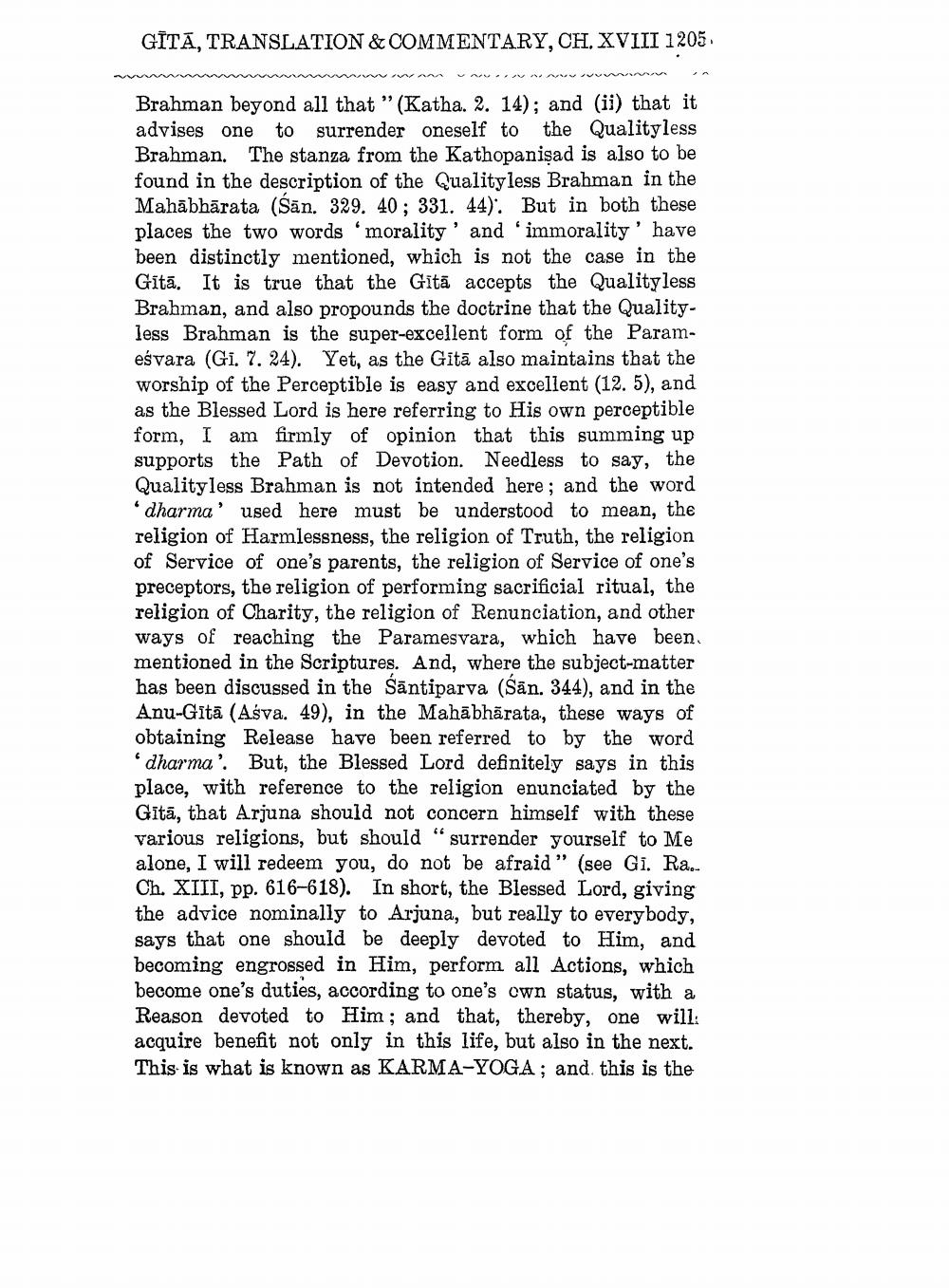________________
GITA, TRANSLATION & COMMENTARY, CH. XVIII 1205.
www.wa
~~N~wwwwwwww
Brahman beyond all that "(Katha. 2. 14); and (ii) that it advises one to surrender oneself to the Quality less Brahman. The stanza from the Kathopanisad is also to be found in the description of the Quality less Brahman in the Mahabharata (Śän. 329. 40; 331. 44). But in both these places the two words 'morality' and 'immorality' have been distinctly mentioned, which is not the case in the Gita. It is true that the Gita accepts the Quality less Brahman, and also propounds the doctrine that the Qualityless Brahman is the super-excellent form of the Paramesvara (GI. 7. 24). Yet, as the Gita also maintains that the worship of the Perceptible is easy and excellent (12. 5), and as the Blessed Lord is here referring to His own perceptible form, I am firmly of opinion that this summing up supports the Path of Devotion. Needless to say, the Quality less Brahman is not intended here; and the word 'dharma' used here must be understood to mean, the religion of Harmlessness, the religion of Truth, the religion of Service of one's parents, the religion of Service of one's preceptors, the religion of performing sacrificial ritual, the religion of Charity, the religion of Renunciation, and other ways of reaching the Paramesvara, which have been. mentioned in the Scriptures. And, where the subject-matter has been discussed in the Santiparva (San. 344), and in the Anu-Gita (Asva. 49), in the Mahabharata, these ways of obtaining Release have been referred to by the word dharma. But, the Blessed Lord definitely says in this place, with reference to the religion enunciated by the Gita, that Arjuna should not concern himself with these various religions, but should "surrender yourself to Me alone, I will redeem you, do not be afraid" (see Gl. Ra.. Ch. XIII, pp. 616-618). In short, the Blessed Lord, giving the advice nominally to Arjuna, but really to everybody, says that one should be deeply devoted to Him, and becoming engrossed in Him, perform all Actions, which become one's duties, according to one's own status, with a Reason devoted to Him; and that, thereby, one will: acquire benefit not only in this life, but also in the next. This is what is known as KARMA-YOGA; and this is the




